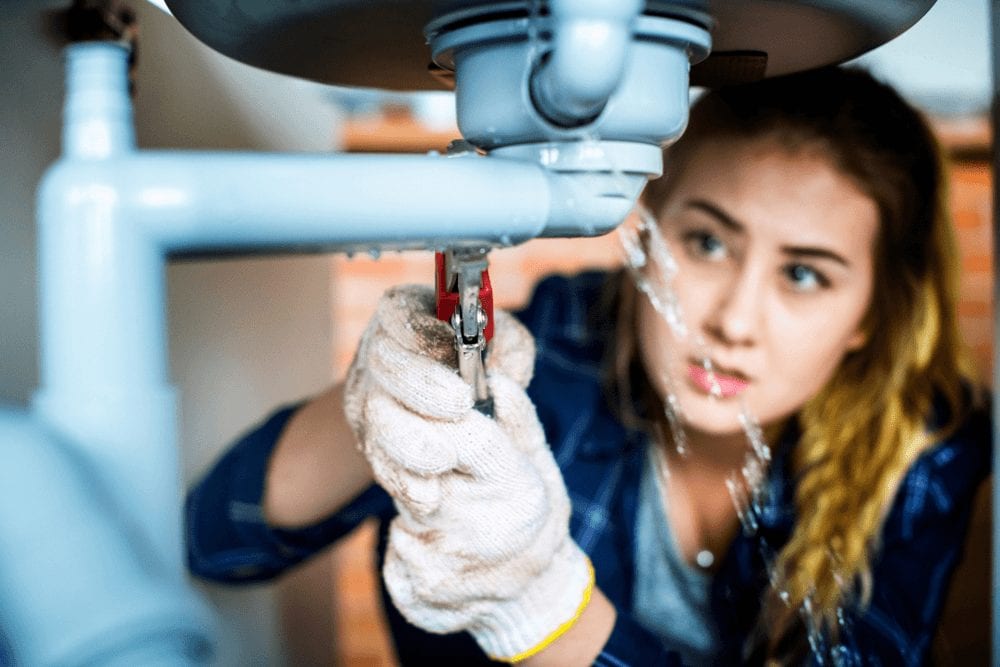Book A Service Call
What're your ideas about Can Hard Water Ruin Your Appliances??

The secret to durable home appliances, unsurprisingly, appertains upkeep. There's no hard and fast regulation that can ensure your plumbing home appliances a long wear, however you can avoid unnecessary damage and also repair services by staying clear of poor plumbing habits.
You need to quit doing these 6 things else you'll keep calling your plumber over for minor faults.
Purging everything
Yes, your toilet drainpipe results in the drains, yet that doesn't mean you need to unload just anything down the drain. Several 'flushable' products are actually wonderful obstruction beginners, for example floss. Asides maintaining noticeable non-flushable products like cords and plastics out of your commode, you should likewise prevent flushing cotton buds, menstrual products, wipes, daipers as well as condoms down the bathroom drainpipe.
Putting grease in the sink
We understand appropriately throwing away oil after a hearty meal is a discomfort. Yet merely putting it down the tubes can do lasting harm to your pipes. "The fat and grease can clog your drainpipe terribly enough to compel you to call a plumber," describes Dawson. "Plumbing works best when it's well taken care of-- not abused with grease."
Making use of too much drainpipe cleaner
Making use of a drainpipe cleaner more than once or twice a month is a sign that something serious is taking place within your pipes. Currently, as opposed to facing the main concern, you go for a quick fix; a fizzy drain cleaner. Rightfully, a drainpipe cleaner will look after the obstruction, however at what price?
The chemicals in a drainpipe cleanser can quicken the corrosion of your pipelines. Add that to whatever underlying issue is triggering the blockage and you may need to a major trouble on your hands.
If you experience way too many clogs, call your emergency plumber as opposed to utilizing a drain cleaner.
Not washing recipes prior to packing them into the dishwasher
it's called a dishwasher, but tossing in recipes, pots, and frying pans covered in huge food fragments can in fact cause some major damages to the appliance, resulting in lasting problems down the line. "Home owners may have to obtain their dishwasher repaired regularly if they don't rinse their recipes before loading, or at the very least get rid of bigger food pieces," explains Audrey Monell, proprietor of Forrest Anderson Plumbing as well as A/c in Glendale, Arizona. "Food that obtains stuck on recipes causes the dishwasher to work harder, which can wear down parts faster, causing issues."
DIYing everything
With plumbing, a stitch in time actually does conserve 9. You can protect against a fullblown plumbing emergency by calling your plumber at the correct time.
You may have learnt a couple of plumbing hacks from your father, yet you ought to recognize where to fix a limit and call a professional. For example, you might be able to take care of a clog yourself, yet you shouldn't try to alter a pipeline. You can mismatch pipes or overtighten a bolt, triggering even more injury and also damage than you assumed. Calling a plumber is a secure and cost effective decision.
Not altering your dishwashing machine tubes
One very easy way to guarantee that you use your dishwashing machine for many years is to change the hose pipe at least once in 5 years. This likewise applies for cleaning maker hoses.
Over time, food bits, soap and oil can create clogs within your pipes. Changing them promptly will certainly prevent any type of presure accumulate that can harm the inner functions of your dishwasher or cleaning maker.
A reinforced steel entwined tube does a wonderful job of lengthening your device's use time.
No winter months precautions
Extreme climate condition misbehave for your pipelines, particularly if they're constructed from steel. You ought to protect your exposed pipes, as well as your water container, even if you have a water heater. You must also shut off your yard tube valve and also any other external water channels. These channels are electrical outlets for chilly; you pipes can begin to freeze from outdoors if you don't.
Prevent Water Damage from Plumbing and Appliances
Prevent toilet failure
Be patient after you flush and wait for the valve to completely finish refilling the tank and bowl. If an overflow looks imminent, lift off the tank cover and lift the float to shut off water flow to the tank, and then turn off the supply valve.
Twice a year, inspect a toilet’s components, such as the fill, supply, and flush valves, and the supply line. Make sure you can turn off the supply. If you have older screw type valves that are hard to turn or start leaking, consider replacing them with simpler ball valves that are easy to shut off quickly.
Inspect and maintain your water heater
Inspect your anode rod every two years, or every year once the warranty has expired, to determine if it needs to be replaced.
Flush water heater tanks every six months to remove sediment by attaching a garden hose to the valve at the base. For safety, first turn off the power and run hot water until it is cool.
Get an annual inspection from a plumbing professional including the shut-off valve and all piping. Signs of broken valves and loose or wet joints and rust are a sign that more severe damage is coming.
Maintain washing machine supply lines
Look for signs the supply hose may be ready to fail—blisters in the hose, worn tubing, stress cracks, or a loose connection.
Replace the supply hose with a reinforced steel braided hose if it shows any sign of wear.
Tighten the connection if it feels loose. The most common site of failure is near the connection where the hose bends.
Replace supply hoses every five years, even if there is no obvious deterioration or wear. Some signs of deterioration may occur from the inside out and may not be visible until it is too late. When replacing washing machine supply hoses, always choose a reinforced steel braided hose over the traditional un-reinforced rubber hose. These hoses will last longer and are far less likely to result in a catastrophic water loss.
Prevent plumbing failure
Never pour grease down the drain.
Plant trees away from lateral drain lines to prevent roots from damaging piping.
If your home’s sewer system is connected to the city’s sewer system—a particular problem for older homes—or if you are located downhill or below street level, contact a plumbing professional to install a backflow prevention assembly into your sewer system.
Call a professional if you notice signs of a plumbing problem—an increased monthly water bill, banging pipes, rust stains, moisture in the walls or on the floor, and signs of wet soil erosion near the foundation.
https://disastersafety.org/maintenance/prevent-water-damage-from-plumbing-and-appliances/

We had been shown that editorial about Leak Detection and Repair Without Destroying Your Home from an associate on our other website. Enjoyed reading our article? Please share it. Let someone else locate it. Thanks so much for going through it.
Source This Article